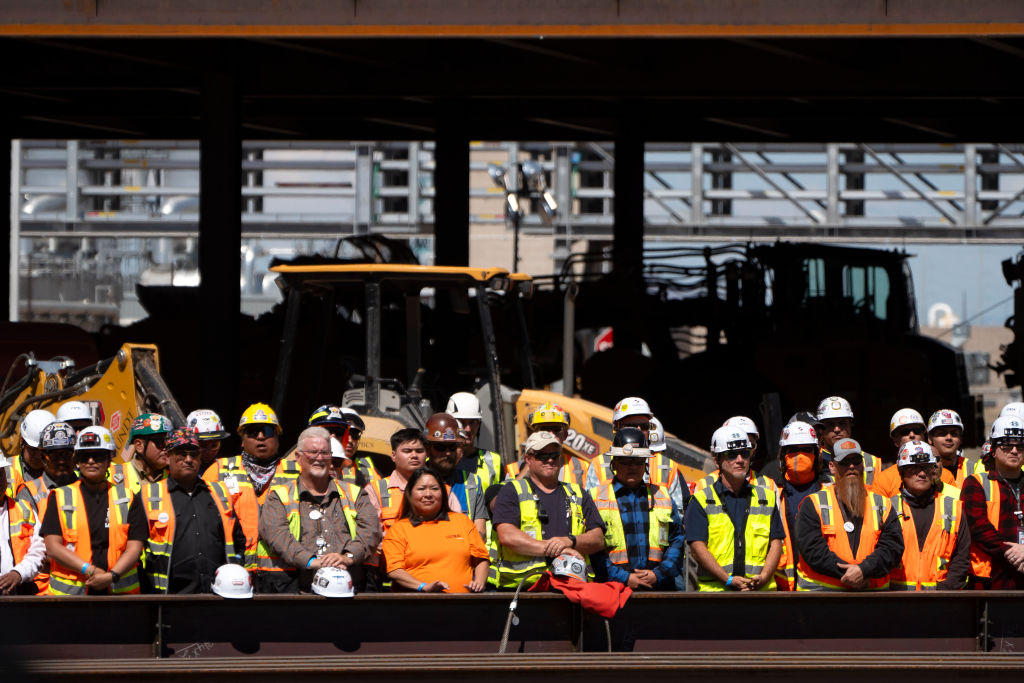Excluding Labor Law Violators from Federal Funding Programs
October 17, 2024
By Alí R Bustamante
Introduction
The Workforce Innovation and Opportunity Act (WIOA) plays a vital role in the United States’ workforce development system, funding programs that provide training, employment, and support services to millions of workers, particularly those facing significant barriers to employment. Yet, since it was first enacted in 1998, WIOA has lacked a critical layer of accountability:
The funding process governing public workforce development programs does not adequately ensure that federal workforce development dollars are not awarded to companies that have recently violated labor laws.
The “Representation of Compliance” provision of the current WIOA reauthorization Senate discussion bill (US Senate 2024, sec. 191(1)(B)) aims to close this gap by preventing employers who violate labor laws from receiving federal funding—a critical measure to protect workers and deter unlawful employer practices that undercut both worker power and safety and high-road business practices.

Guardrails that prevent labor law violators from receiving federal funding are crucial in ensuring that taxpayer money does not indirectly support illegal practices, such as child labor, wage theft, and unsafe working conditions.
The proposed “Representation of Compliance” provision has become a flash point in the WIOA reauthorization process, effectively bringing negotiations to a standstill. This brief argues for the necessity of such guardrails, examining the extent of labor law violations in the US, examples of existing federal laws that restrict funding to violators, and the need for stronger labor protections and enforcement. Currently, the United States’ workforce development framework fails to provide the accountability that ensures workers have access to good jobs and economic mobility (Smith Finnie and Elliott 2024). Reauthorizing WIOA without strengthening labor law compliance would continue to fail workers on this front.
WIOA funds are distributed through state and local workforce development boards that oversee the allocation of resources to service providers, such as job training centers, community colleges, and private employers offering on-the-job training (OJT) contracts. These funds are instrumental in equipping workers with skills for high-demand occupations and in assisting employers in filling gaps in their workforce.
The “Representation of Compliance” provision would specifically target employers applying for OJT contracts under WIOA funding. It would require these employers to attest that they have not been subject to any final administrative merits determination, arbitral award, decision, or civil judgment for a violation of a covered federal labor law in the two years preceding their application. The provision defines covered federal labor laws as those enforced by the Equal Employment Opportunity Commission, the National Labor Relations Board, or the Department of Labor.
This provision would have a significant impact on WIOA programs. Barring employers with a recent history of labor law violations from participating in OJT contracts would ensure that workers are placed in compliant, lawful working environments. It addresses the concern that federal funds could otherwise subsidize companies that undermine workers’ rights through practices such as wage theft, unsafe working conditions, or illegal discrimination. This safeguard would particularly benefit workers who are most susceptible to exploitation in the workplace, such as displaced workers, low-income adults, and at-risk youth.
Some employer groups have argued that the “Representation of Compliance” provision is overly punitive and burdensome, potentially disqualifying businesses that have already resolved their violations or are working to improve compliance (Jacoby 2024). They contend that the two-year lookback period for labor law violations does not account for the complexities of labor disputes, where settlements or judgments may not always reflect the employers’ intentions or ongoing compliance efforts.
Proponents, on the other hand, argue that the provision is a necessary safeguard against the misuse of public funds, reinforcing that businesses benefiting from federal workforce programs must adhere to labor laws. They see it as a logical step in enhancing accountability, protecting workers, and maintaining the integrity of publicly funded workforce initiatives. And they argue the two-year lookback period for violations ensures that companies are held accountable while accommodating the time it takes for remediation and improvement.
Suggested Citation
Read the citation
Bustamante, Alí R. 2024. Excluding Labor Law Violators from Federal Funding Programs. New York: Roosevelt Institute, October 17, 2024.
